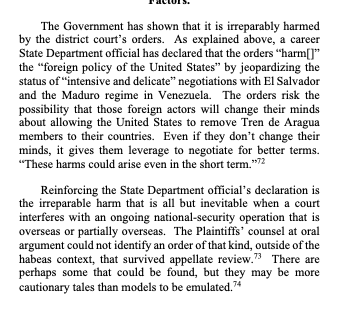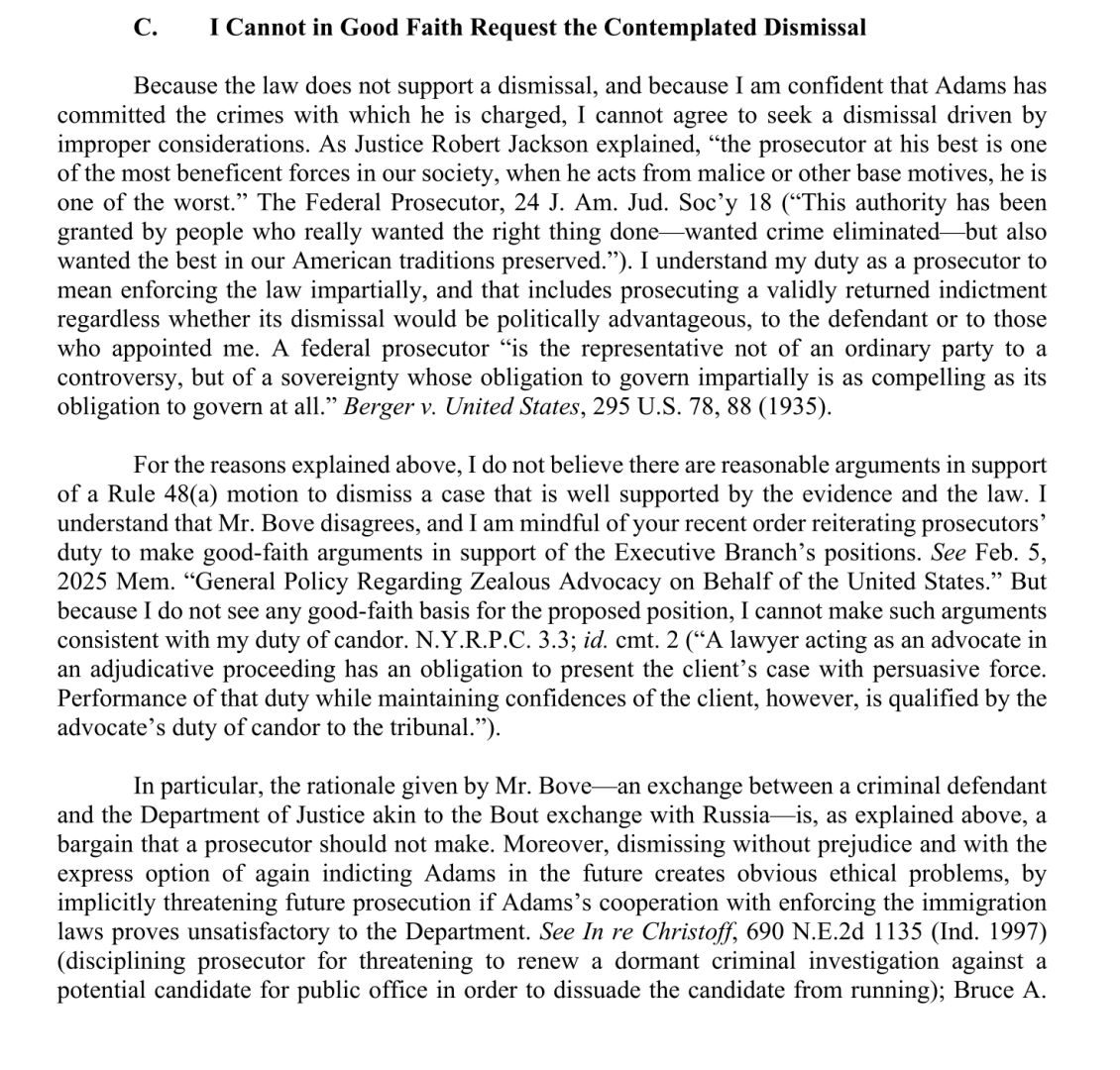DC Circuit denies the motion for an emergency stay in the Boasberg case 2-1, with a brief order and 92 pages of concurrences (one by Henderson, one by Millett) and a dissent (Walker).
I'm going to scan through the opinions and select out key parts. 🧵
media.cadc.uscourts.gov/orders/docs/20…
I'm going to scan through the opinions and select out key parts. 🧵
media.cadc.uscourts.gov/orders/docs/20…

I'm going to stick mostly with the merits issues.
1st up Henderson: The idea that the President's call is unreviewable is wrong.
1st up Henderson: The idea that the President's call is unreviewable is wrong.

"Questions of interpretation and constitutionality—the heartland of the judicial ken—are subject to judicial review." 

Millett: The district court is handling this carefully, and there is no authority or reason to intervene at this early emergency stage. 

Millett: "Judicial review has always been available to noncitizens detained or removed under the AEA." 

Millett: The district court merely ordered the government to maintain custody; it wasn't telling them to turn a plane around. 

Millett: "The judiciary, not the Executive, has the ultimate constitutional responsibility and capacity for saying what statutes and statutory terms mean." See Loper Bright. 

Millett: "the government is mistaken about the extent of unilateral Executive authority under the Constitution." 

• • •
Missing some Tweet in this thread? You can try to
force a refresh





























